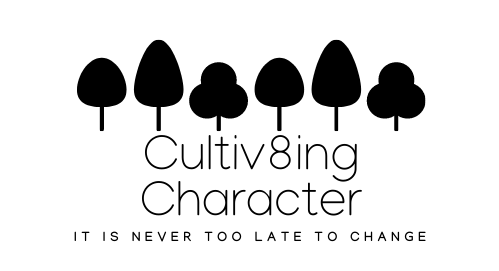Friends, I’ve been working at Walmart the last few weeks, and I have never, in my life, been more fatigued.
Like, I have a whole new level of respect and esteem for retail workers because lots of my body parts (particularly my shoulders and feet) feel like they got walloped by The Whomping Willow Tree.
Seriously.
By the end of the day, I’m walking like a cross between a King penguin and an old lady.
It is not a great look for me, and I’ll admit, the first couple of days, there were some additional incidents like spontaneously skating (flailing) down an aisle after stepping in a puddle of spilled dish detergent and getting squirted with juice from a saran-wrapped chicken that made me question whether Walmart was the place for me.
However!
I am sticking with it because almost concussion and chicken juice aside, working at Walmart–even just for a few weeks–has been illuminating.
See, in addition to getting to interact with a whole host of interesting people from former gang members to Vietnam vets, I’ve also gotten to reflect on why work is, itself, important.
And, friends, I now fully believe that work is a major key to becoming a better human being.
At least for me 🙂
And so this week, I’d like to share three things that working at Walmart has helped me see about why work is a great, good thing.
Hopefully, it’s helpful for you when approaching whatever work you’re doing!
#1 Work Combats Self-centeredness
I don’t know about you, but if I don’t check myself, I tend to be preoccupied with a steady stream of me-me-me.
How do I feel?
What do I want?
What do I think?
Etc. etc.
Now, I don’t think self-centeredness is a good look on anybody, but it’s a particularly ugly look for me, which is why I’m very grateful for my job at Walmart because it makes being self-centered pretty much an impossibility.
See, besides the simple fact that my actual job is to do another person’s shopping (I’m a “picker” in the Online Grocery Pick-Up “OGP” Department), I also have to be prepared to stop whatever I’m doing to answer in-person shoppers’ questions and help them find things.
In all cases, whether I’m selecting bananas and cuts of meat or helping people locate a generic version of Laxease, my aim is to serve and please.
In brief, it’s not about me.
And here’s the thing:
Prior to working, that perspective didn’t exactly come to me naturally.
It’s like the late, great David Foster Wallace said in his incredible Kenyon College commencement speech:
“Everything in my own immediate experience supports my deep belief that I am the absolute center of the universe; the realest, most vivid and important person in existence.”
I’ve felt that.
And in my experience, work–in my case, actual, physical work–helps break you out of that mindset by dint of the fact that work demands you focus on someone else’s feelings, thoughts, desires, and/or needs whether you’re mopping floors or writing a PR brief.
Now, while I do think work in service industry has some inherent advantages to combating self-centeredness, I think work of pretty much any sort can achieve the same thing because whether you work at Walmart or on Wall Street, there are always going to be opportunities to serve, please, care for, etc. another human being.
Personally, in my work at Walmart and otherwise, I’m trying to model what the apostle Paul penned in Philippians 2:5-7:
“In your relationships with one another, have the same mindset as Christ Jesus who, being in very nature God, did not count equality with God as something to be used to His own advantage. Rather, He made Himself nothing, taking on the very nature of a servant, being made in human likeness.”
Jesus’ model is one I want to follow in everything, and work, particularly work at Walmart, is doing a good job of getting me to practice what I preach.
However!
Working at Walmart has also made it very clear to me that while I want to be as much like Jesus as I can possibly be, I am not God, and therefore, I can’t do everything.
#2 Work Breeds Humility
You know the saying “The mind is willing, but the body is weak?”
Yeah.
Well, when someone orders 35–thirty-five–gallons of 2% milk, that’s the truism that comes to mind immediately, and personally, I start reflecting on the fact that my mom’s family has a history of brittle-bone disease and thinking maybe lifting all that cow juice is going to turn on my osteoporosis gene.
Seriously.
If it were up to me, the only things people would be allowed to buy online would be cereal, chips, bread, and shredded cheese.
Anything else (including any and all items located on abominably tall top shelves), and they’d have to tote that tote themselves.
Unfortunately, or rather, fortunately, what people can and can’t order isn’t actually up to me.
Thus, I actually have to confront the fact that I can’t sling around 40-count packs of 16 ounce water bottles without breaking my back or reach the popular brand of cat litter sitting three feet above my head.
I must therefore acknowledge that there is indeed a limit to my abilities, and as reluctant as I am to admit it, that’s actually a good thing.
See, I don’t know about you, but if everything I do is left up to me, I will usually only do what I am sure I can achieve.
While that makes for easy living, it also leads to a fair bit of pride and pigheadedness because I’m living in a cocoon of carefully curated successes.
In that state, it’s easy to start thinking I’m the bee’s knees and that I can do anything, which is why I think work is a great, good thing because work, particularly if you are an employee with top-down standards and expectations to meet, provides a much needed dose of reality.
I can personally attest that working at Walmart has been a good and humbling reminder that while I might have a lot going for me, there are still things that are simply, even literally, beyond my reach.
And to that end, it forces me to recognize that I need help with things, which brings me to point #3!
#3 Work Creates Community
If you are anything like me, you’re not a huge fan of asking for help with things.
Indeed, I, for one, will instinctively do all I possibly can to remain self-sufficient in almost any circumstance, which is why last week, a small child caught me standing on my tiptoes trying to use a pink lightsaber I’d procured from the children’s section to nudge a glass enclosed, papaya-scented candle from the top shelf of the home decor department.
Upon reflection, that was really not the best course of action.
Mistakes were definitely made as evidenced by the fact I very nearly got a papaya-scented candle to the face.
However!
Since then, conscious that small children (as well as security cameras) are watching me and that I need to be setting a good example (and not breaking store policy), I’ve been making a determined effort to seek out assistance rather than, shall we say, winging it, whenever I’m assigned a task that I can’t alone (and safely) accomplish.
And, friends, it’s made a big difference because asking for help has not only mitigated my risk of facial injury but also introduced me to the greater Walmart community!
I now have people in almost every corner of the store I know by name who can swoop in and save the day whenever I can’t find/reach/lift something or need the keys to the infamous FAMILY PLANNING case.
They’re my buddies 🙂
And see, you might think that outcome is a me or a Walmart thing, but I submit that because, as we have already established, all types of work eventually make you hit your limit–all types of work create opportunities to give and receive assistance.
And that does wonders for building relationships.
But don’t just take it from me!
In Galatians 6:2, Paul writes,
“Bear one another’s burdens and so fulfill the law of Christ,” and the law of Christ is to love both God and all mankind!
Love, then, if you let it, can be work’s ultimate end.
Isn’t that fantastic?
I think so!
And listen, work is hard.
There’s no getting around that.
My time at Walmart has been not without its challenges (recall spontaneous skating, chicken spray, papaya-scented candle almost rearranging face).
However!
It’s also training me to see others and their needs as more significant than me.
It’s also teaching me humility.
And it’s also giving me a new and wonderful community full of people that I’m coming to care for quite deeply.
So when it comes to work, in the end, I think my man Dietrich Bonhoeffer in his book Life Together put it best:
“Work does not cease to be work; on the contrary, the hardness and rigor of labor is really sought only by the one who knows what it does for him.”
I can’t speak for you, but I have a good sense of what work, particularly what work at Walmart, is doing for me.
And I can say, without reserve, that it’s carving me into the person I was created to be.
I really hope whatever work you’re doing is doing the same thing.
That’s all for this week!
If you want to support me, please subscribe and share!
It costs you nothing–it’s just nice to know I have readers out there 🙂




























